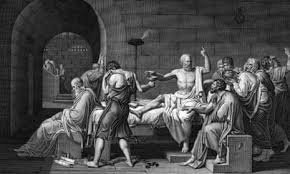Ph.D. in Classics: Introduction, Admission, Registration, Eligibility, Duration, Fees, Syllabus 2024

Introduction:
A Ph.D. in Classics offers a captivating journey into the ancient world, encompassing the languages, literature, history, and culture of ancient civilizations such as Greece and Rome. This interdisciplinary program provides a deep dive into the foundational texts and cultural artifacts that have shaped Western civilization. Doctoral candidates engage in advanced study and research, exploring the nuances of ancient languages, analyzing classical literature, and unraveling the complexities of ancient societies. With a focus on critical thinking, scholarly inquiry, and interdisciplinary approaches, the Ph.D. in Classics prepares students to become expert scholars and educators, contributing to our understanding of the past and its relevance to the present.
Admission Process:
- Submit an online application with academic transcripts, letters of recommendation, and a statement of purpose.
- Possess a master's degree in classics, classical languages, or a related field.
- Demonstrate proficiency in ancient languages such as Greek and Latin.
- Participate in interviews or entrance exams to assess research interests and academic fit.
Eligibility:
- A master's degree in classics, classical languages, classical literature, or a related field.
- Proficiency in ancient languages and relevant research methodologies.
- Demonstrated research aptitude and academic excellence.
- Fulfillment of any additional requirements specified by the institution.
Completion Time:
Completing a Ph.D. in Classics is a captivating journey through the ancient world, typically spanning between four to six years of intensive study. This doctoral program offers a comprehensive exploration of ancient civilizations, encompassing languages, literature, history, philosophy, art, and archaeology.
The completion time of a Ph.D. in Classics is influenced by various factors, including the complexity of the research topic, language proficiency requirements, dissertation writing, and individual progress. Doctoral candidates engage in advanced coursework, seminars, and independent research projects under the guidance of expert faculty members.
During the initial years of the program, students deepen their understanding of ancient languages such as Greek and Latin, delve into classical literature, and explore the historical and cultural contexts of ancient texts and artifacts. They participate in interdisciplinary seminars, honing their research skills and developing their scholarly perspectives.
As students progress through the program, they focus on their dissertation research, conducting original investigations that contribute to the field of classical studies. This research phase involves analyzing primary sources, interpreting textual and material evidence, and presenting findings in a coherent and scholarly manner.
While the exact completion time may vary based on individual circumstances and research progress, graduates emerge as seasoned scholars equipped with the expertise and critical thinking skills to pursue careers in academia, museums, cultural institutions, publishing, and beyond. They become stewards of the classical tradition, contributing to our understanding of the past and its relevance to contemporary society.
Career Opportunities:
- University professor or researcher in classics or classical studies departments.
- Curator or museum professional specializing in ancient artifacts and exhibitions.
- Archaeological consultant or heritage manager for government agencies or cultural organizations.
- Opportunities in publishing, public outreach, and cultural heritage management.
Syllabus:
- Advanced coursework in classical literature, ancient languages, history, philosophy, and archaeology.
- Independent research leading to a doctoral dissertation focused on a specific area of interest within classical studies.
- Elective courses tailored to individual research interests and career goals.
Internship Opportunities:
- Participation in archaeological excavations and research projects.
- Internship placements with museums, cultural institutions, or academic research centers.
- Collaboration with research teams and projects both domestically and internationally.
Scholarship and Grants:
- Institutional scholarships based on academic merit and research potential.
- Research grants from government agencies, foundations, and private organizations supporting classical studies.
- Teaching or research assistantships offered by the university.
FAQs:
Can I apply with a bachelor's degree in a related field?
Typically, a master's degree in classics or a related field is required for admission.
Are there opportunities for international research during the program?
Yes, many programs offer opportunities for students to participate in research projects and conferences abroad.
What languages are required for the program?
Proficiency in ancient languages such as Greek and Latin is often required, although specific language requirements may vary by program.
